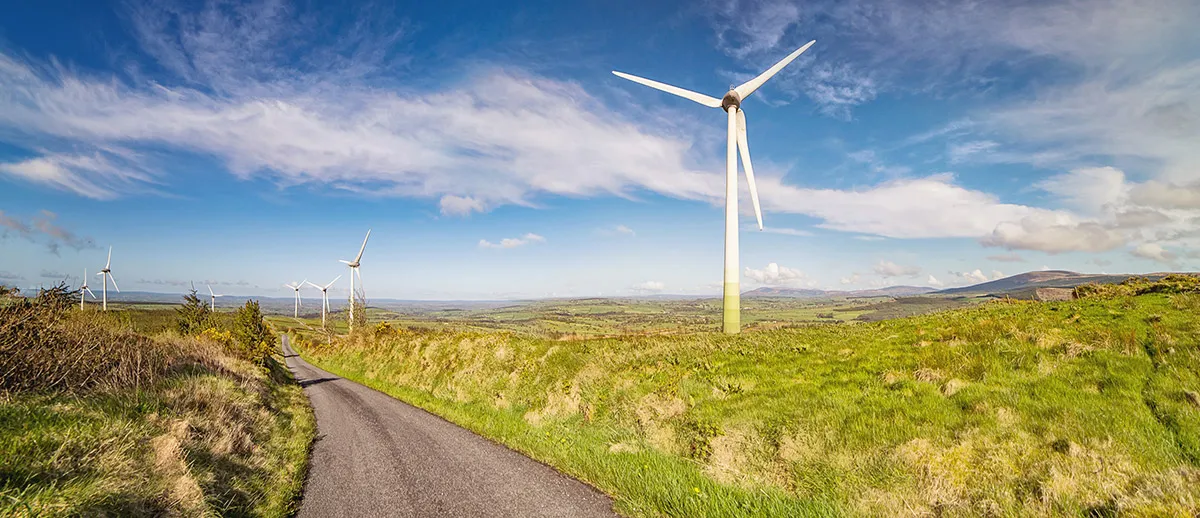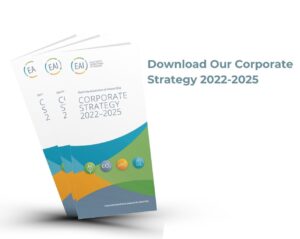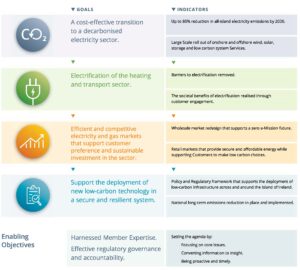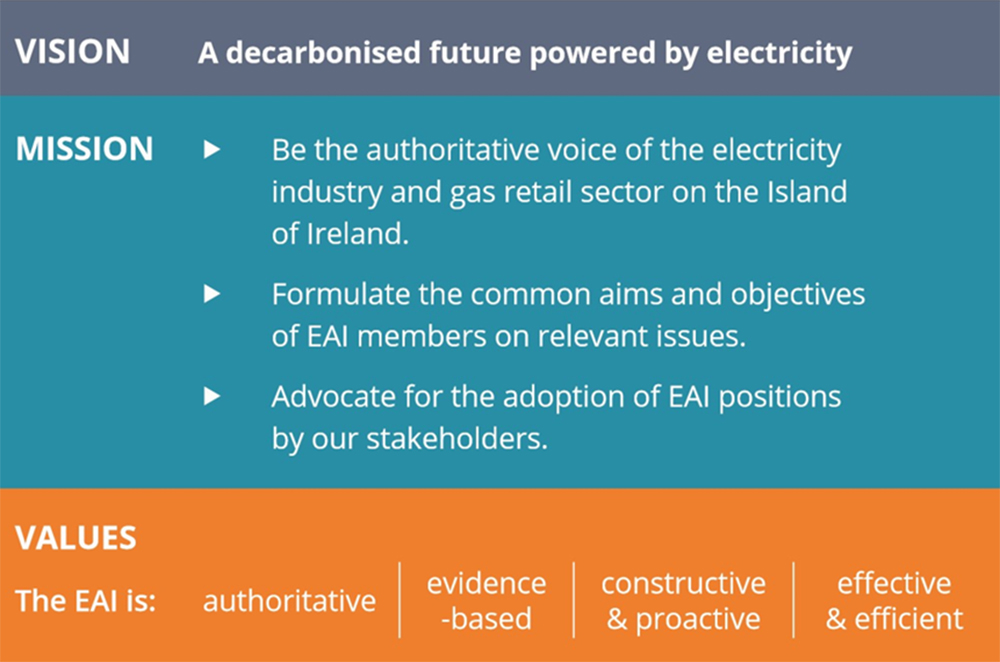Our Strategic Plan 2022- 2025 has been developed during a period of significant change for Ireland’s electricity and gas retail industry; however, our strategic goals of decarbonising electricity at a time of unprecedented growth in electrification while maintaining security of supply remain.
The strategic objective for the Electricity Association Ireland (EAI) is to engage comprehensively with all stakeholders on a system wide basis to ensure that the scale of the investment, Government and European policy and the regulatory framework supports the delivery of our four strategic goals. Against a backdrop of record high gas and electricity prices and system tightness in the coming years the EAI will be dynamic in its implementation of this objective. We believe that a decarbonised electricity system will decarbonise society and move transport and heating away from fossil fuels. It is important that electricity consumers on that journey have more choice, control, and a better experience in meeting their energy needs. Our members will continue to work with their customers to raise awareness on the range of products and services available to them to save energy, generate electricity and switch to electric mobility.
The dramatic events of the last 12 months have put a focus on market outcomes, which has caused some to call for a rethink of energy market parameters and design.
This will require an in-depth analysis of cause and effect. The Capacity Market will be the primary driver of the significant investment required and there is now an urgent need to ensure that the relevant parameters emphasise investment retention with the EAI providing thought leadership on how capacity markets, system service markets, renewable supports and energy markets work collectively to incentivise the timely investments required to deliver on our zero e-Mission future.
To make this transition to a decarbonised future we will need an efficient and competitive energy market that supports sustainable investment in our sector.
Electricity will form a much larger proportion of final energy consumption towards 2030. This will require significantly more transmission infrastructure, non-infrastructure solutions, and the optimisation and upgrade of the existing network. We must prioritise an accelerated rollout of the current pipeline of renewables while finalising the framework for offshore wind to connect at scale around the island of Ireland before the end of the decade. We must bring forward low carbon system services to support the high renewables system and we must place a much greater emphasis on security of supply through energy storage and zero carbon dispatchable generation, for example from green hydrogen. We see appropriate regulatory governance and effective accountability structures being a key enabler of our strategy.




